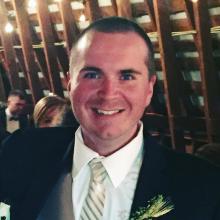Lessons Learned (and Unlearned) at STARCANADA 2018

One of the most exciting parts of my job is traveling to new places to connect with people in the tech community. I’ve already met hundreds of software testers who all have the same goals in mind: test better, faster, and more securely.
I recently went to Toronto for STARCANADA. While at the conference, I found myself more interested in sessions on agile, AI, and automation. Here are some highlights from the conference and the greater software community.
What's Our Job When the Machines Do Testing?
Almost seventy years ago, Alan Turing theorized that artificial intelligence would one day integrate to such a degree that many of us would be unable to distinguish it from a human. As AI—and technology, in general—continue to shift our way of life, people wonder how AI might affect the workforce.
In his session at STARCANADA, Geoff Meyer explained that AI will replace jobs, but we won’t automate whole jobs away. AI will help us manage the boring, mundane tasks we want to delegate anyway, while allowing us to explore new, engaging opportunities.
In fact, the Center for the Future of Work predicts that in the next ten to fifteen years, AI will replace 19 million jobs in the US that we know today, but create more than 21 million new jobs we haven’t even thought of yet.
AI and automation will change, replace, and eliminate certain jobs, but they also will create and enhance new ones.
From a Testing Team to an Organization Quality Chain
In order to regularly deliver working software, the entire organization must place an emphasis on quality. Developer-turned-QA advocate Sophie Benjamin has spent the better part of a decade building and remodeling QA teams while shifting the burden of quality from the testing team to the organization as a whole.
Sophie suggests that testers and test managers need to be leaders when building an organization quality chain. They should head the effort in breaking the preconceived notion that quality belongs at the end of the development process.
Sophie said she spends about 70 percent of her time managing quality on her development team and just 30 percent of her time with the QA team, because she feels quality must start in dev. QA teams are specifically dedicated to ensuring quality, but by having allies throughout the organization, companies can deliver high-quality software on time and within budget.
Make Shift Happen
When trying to learn new ideas, it’s often hard to break old habits. The most effective way to forget your current knowledge is to “unlearn” it.
In her talk at the conference’s Women Who Test event, Jessie Shternshus discussed strategies for how you can start unlearning.
Jessie led a couple of interactive activities and introduced a really cool example of unlearning, where engineer Destin Sandlin unlearned how to ride a bike so he could learn to ride a specially engineered bike instead. It took Destin eight months to ride fifteen feet on his new bike, highlighting the importance of training yourself to unlearn even when you’re not actively trying to learn something new.
Learning is hard, but you can make it easier if you train yourself to unlearn.

